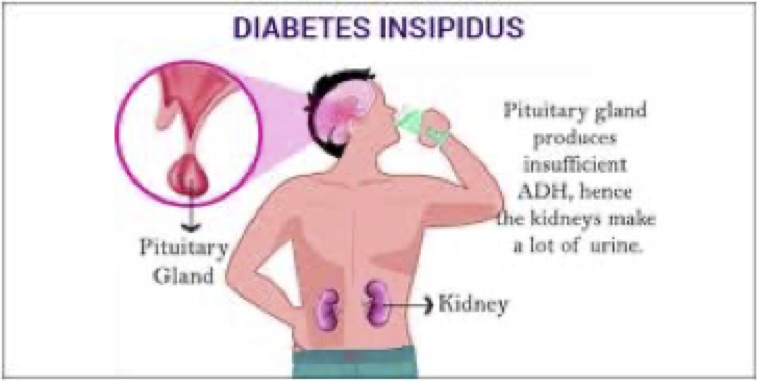What is Diabetes Insipidus (DI)?
- diabainein: Greek, “to pass through”
- insipidus: Latin, “having no flavor”
- DI is defined as excess passage of large volumes (> 3 L/day) of dilute urine.

What are the causes of excess urination (increased urine volume)?
- Diabetes Mellitus or sugar Diabetes,
- DI – due to deficiency of circulating Anti- Diuretic hormone- ADH,
- Nephrogenic DI – Due to renal resistance to ADH,
- Primary polydypsia polyuria due to excessive drinking,
- Gestational (pregnancy) DI – enzyme made by the placenta destroys ADH in the mother.
What is the treatment?
Central diabetes insipidus. Because the cause of this form of diabetes insipidus is a lack of anti-diuretic hormone (ADH), treatment is usually with a synthetic hormone called desmopressin you can take desmopressin as a nasal spray, as oral tablets or by injection.
Nephrogenic diabetes insipidus: Low-salt diet, Drug of choice Hydrochlorothiazide.
Gestational Diabetes insipidus: Treatment is Desmopressin nasal spray.
Primary polydipsia: There is no specific treatment for this form of diabetes insipidus, other than decreasing the amount of fluid intake.